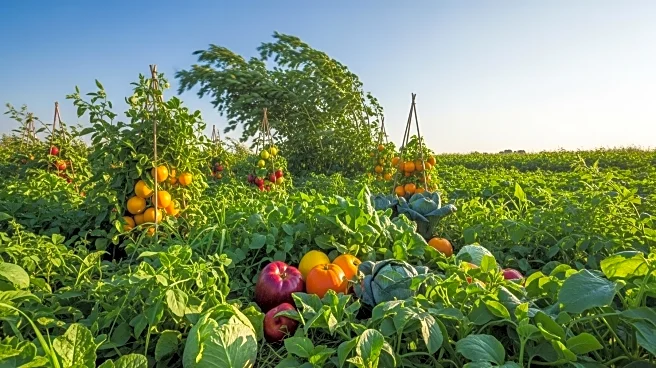What's Happening?
The global sustainable agriculture market is projected to reach $59.3 billion by 2034, growing at a CAGR of 10.7%. Sustainable agriculture involves environmentally responsible farming practices that aim to minimize ecological harm while promoting long-term productivity. Regenerative agriculture, a subset of sustainable agriculture, focuses on improving soil health and revitalizing farm ecosystems. Despite growing recognition of its benefits, the market faces challenges such as high initial investment costs and a shortage of skilled labor. Major players in the market include BASF SE, Corteva Agriscience, and The Mosaic Company.
Why It's Important?
The shift towards sustainable agriculture is driven by increasing carbon emissions and declining arable land availability, necessitating a transition from conventional farming methods. This transition is crucial for reducing greenhouse gas emissions, improving soil fertility, and optimizing water usage. The market's growth reflects a broader trend towards environmentally sustainable practices in agriculture, which could have significant implications for food security and environmental conservation. Companies investing in sustainable agriculture stand to benefit from increased demand and regulatory support.
What's Next?
North America is expected to maintain its leading position in the sustainable agriculture market, supported by corporate engagement and major industry players. The Asia Pacific region is poised for robust growth due to its vast agricultural resources and governmental support for innovative farming techniques. Future developments may include increased collaboration between companies and farmers to promote regenerative practices and reduce carbon emissions.











